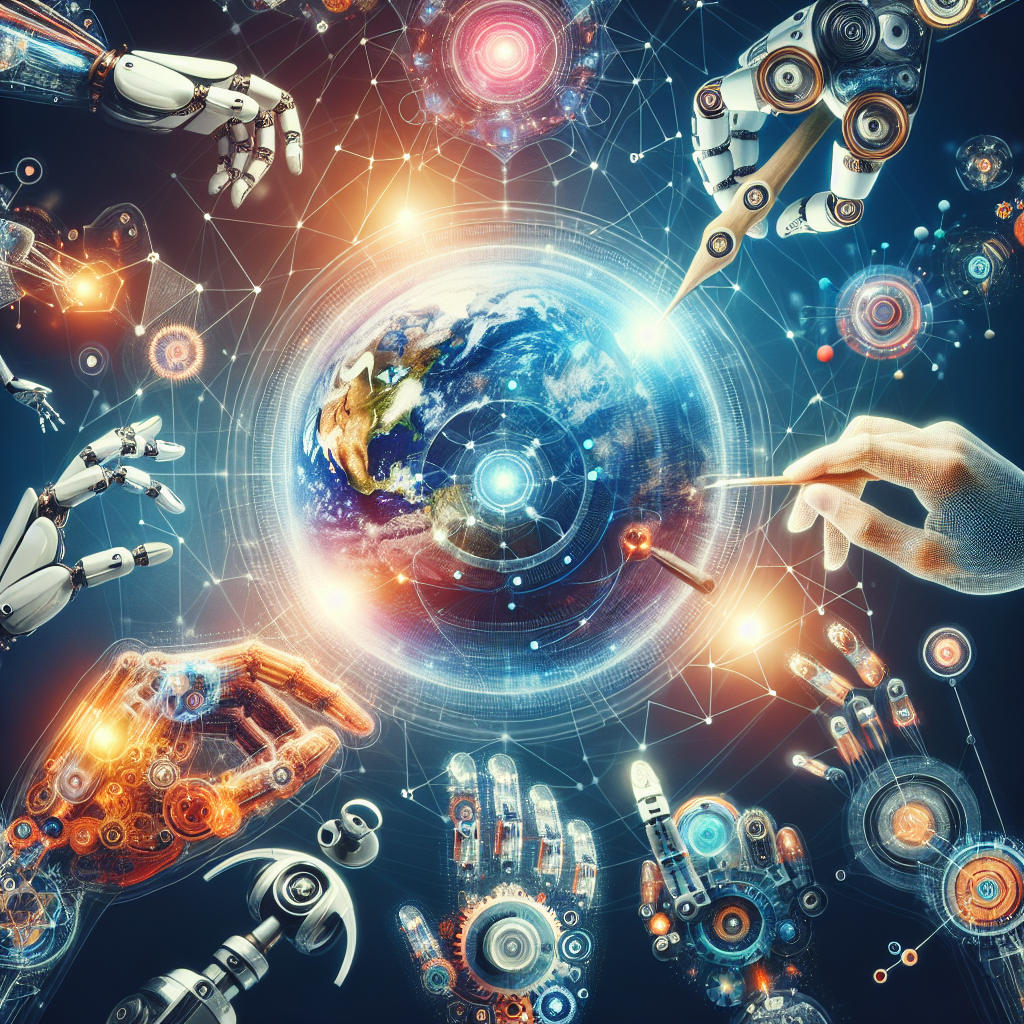As technology continues to rapidly evolve, so does its impact on our lives and work. The rise of artificial intelligence (AI) and automation has transformed industries, reshaped job roles, and altered the way we interact with the world around us. In this article, we will explore the exciting future of technology, delving into the ways AI and automation are changing the way we work and live.
The Rise of Artificial Intelligence
Artificial intelligence, often referred to as AI, is the development of computer systems that can perform tasks that typically require human intelligence. This includes tasks such as visual perception, speech recognition, decision-making, and language translation. AI has rapidly advanced in recent years, with applications ranging from virtual assistants like Siri and Alexa to sophisticated algorithms used in healthcare, finance, and transportation.
One of the most significant impacts of AI is its ability to automate repetitive tasks and streamline complex processes. This has led to increased efficiency in various industries and has allowed workers to focus on more value-adding activities. For example, in manufacturing, AI-powered robots can perform precise and repetitive tasks with minimal error, freeing up human workers to focus on tasks that require problem-solving and critical thinking.
The Impact of Automation
Automation, the use of technology to perform tasks without human intervention, has also revolutionized industries and the workplace. From self-checkout machines in retail stores to automated data entry in business processes, automation has become an integral part of modern work environments. With the advent of advanced robotics and machine learning, automation is now capable of performing complex tasks that were once exclusively done by humans.
While the rise of automation has raised concerns about job displacement, it has also created new opportunities and shifted the nature of work. Many routine and manual jobs have been automated, leading to the emergence of new roles that require a combination of technical and soft skills. As a result, workers are now required to adapt to evolving job demands, learn new technologies, and develop critical thinking and problem-solving abilities.
The Evolution of Work
As AI and automation continue to reshape industries, the nature of work is evolving. Traditional job roles are being redefined, and new skills are in high demand. The future of work will require individuals to be adaptive, lifelong learners who are capable of leveraging technology to solve complex problems and innovate. From data analysis and programming to creativity and emotional intelligence, the skills needed in the workforce are becoming increasingly diverse.
Moreover, the concept of remote work and flexible schedules has been accelerated by advancements in technology. With the ability to collaborate virtually, access information from anywhere, and communicate seamlessly, employees are no longer confined to a traditional office setting. This shift has not only provided workers with more flexibility but has also opened up opportunities for global collaboration and talent acquisition.
FAQs
How will AI and automation impact job availability?
While some jobs may become automated, the rise of AI and automation is also creating new job opportunities in emerging fields such as data science, cybersecurity, and artificial intelligence development.
Will AI and automation replace human workers?
While AI and automation may automate certain tasks, they are also enhancing human capabilities and creating new roles that require a combination of technical and soft skills.
What are the ethical considerations of AI and automation?
Ethical considerations of AI and automation include issues such as privacy, bias in algorithms, and the impact on job displacement. It is crucial for organizations and policymakers to address these ethical concerns as technology continues to advance.
Conclusion
The future of technology is undeniably exciting, with AI and automation paving the way for innovative advancements in various industries. While these technologies are transforming the way we work and live, they also present challenges that must be addressed. As we look towards the future, it is essential to embrace the opportunities presented by AI and automation while remaining mindful of the ethical, social, and economic implications of these transformative technologies.
















